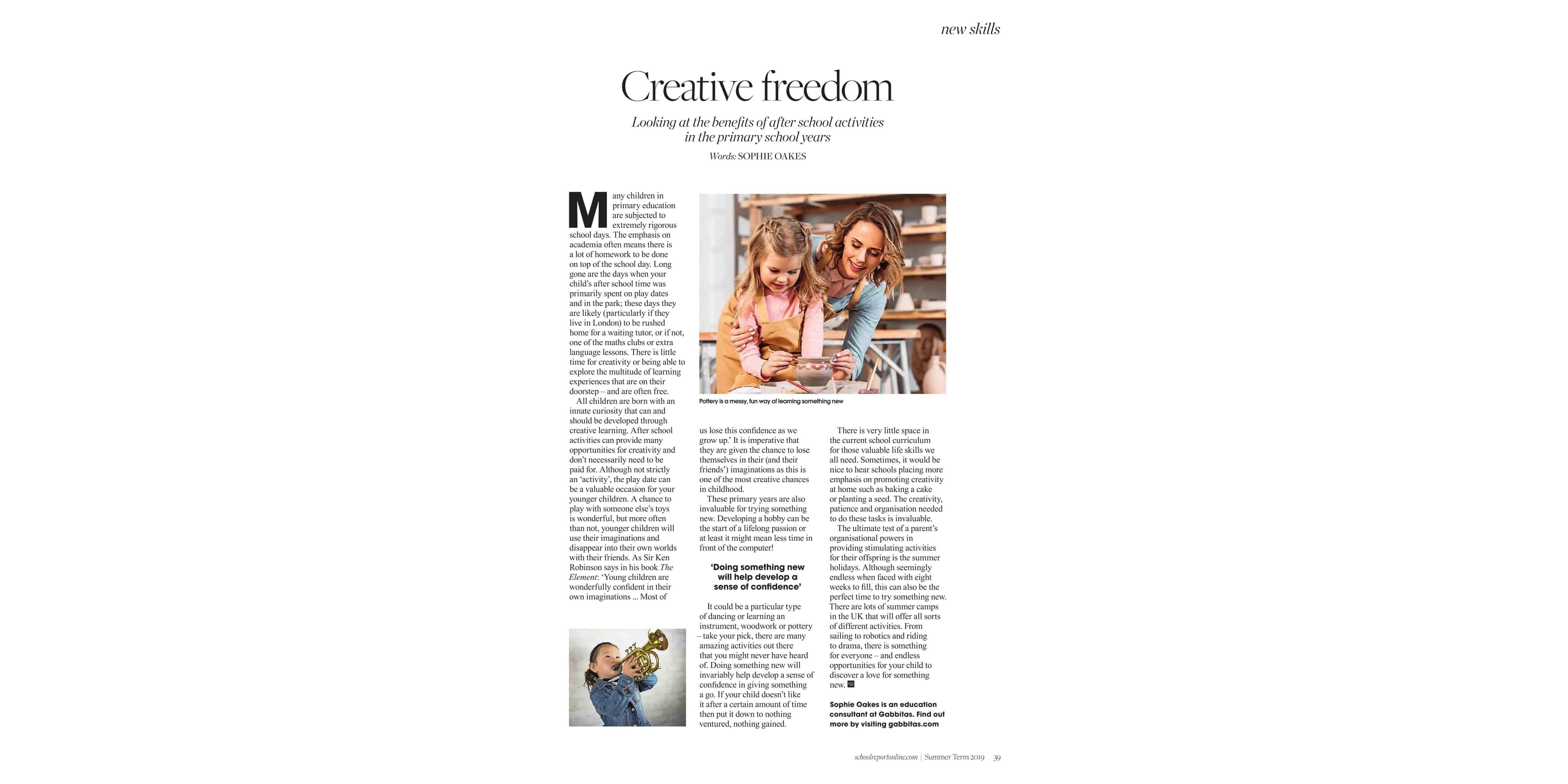Original Source: School Report Magazine, Summer Term 2019
Many children in primary education are subjected to extremely rigorous school days. The emphasis on academia often means there is a lot of homework to be done on top of the school day. Long gone are the days when your child’s after school time was primarily spent on play dates and in the park, these days they are likely (particularly if they live in London) to be rushed home for a waiting tutor or if not, one of the maths clubs or extra language lessons. There is little time for creativity or being able to explore the multitude of learning experiences that are on their doorstep and are often free!
All children are born with an innate curiosity that can and should be developed through creative learning. After school activities can provide many opportunities for creativity and don’t necessarily need to be paid for. Although not strictly an ‘activity’, the play date can be a valuable occasion for your younger children. A chance to play with someone else’s toys is wonderful but more often than not, younger children will use their imaginations and disappear into their own worlds with their friends. As Sir Ken Robinson says in his book, The Element, “young children are wonderfully confident in their own imaginations … Most of us lose this confidence as we grow up”. It is imperative that they are given the chance to lose themselves in their (and their friends) imaginations as this is one of the most creative chances in childhood. (It is also the perfect time to eat someone else’s food and practice one’s manners!)
These primary years are also invaluable for trying something new. Developing a hobby can be the start of a lifelong passion or at least it might mean less time in front of the computer!
It could be a particular type of dancing or learning an instrument, woodwork or pottery, take your pick there are many amazing activities out there that you might never have heard of…Doing something new will invariably help develop a sense of confidence in giving something a go. If your child doesn’t like it after a certain amount of time then put it down to nothing ventured, nothing gained.
There is very little space in the current school curriculum for those valuable life skills we all need. Sometimes, it would be nice to hear schools placing more emphasis on promoting creativity at home such as baking a cake or planting a seed. The creativity, patience and organisation needed to do these tasks is invaluable.
Your child is never too young to develop financial skills. Creating and prioritising a shopping list can be a lifelong skill just as working out what to do with your pocket money can provide valuable practical numeracy lessons.
The ultimate test of a parents organisational powers in providing stimulating activities for their offspring, is the summer holidays. Although seemingly endless when faced with eight weeks to fill, this can also be the perfect time to try something new. There are lots of summer camps in the UK that will offer all sorts of different activities. From sailing to robotics and riding to drama, there is something for everyone. There is the possibility to do day camps or residential courses all over the UK.
If you would like any further help on organising the summer holidays and finding the perfect camp for your child, please do not hesitate to contact us at Gabbitas as we have a useful bank of research on a wide variety of Summer Activities for your child.


